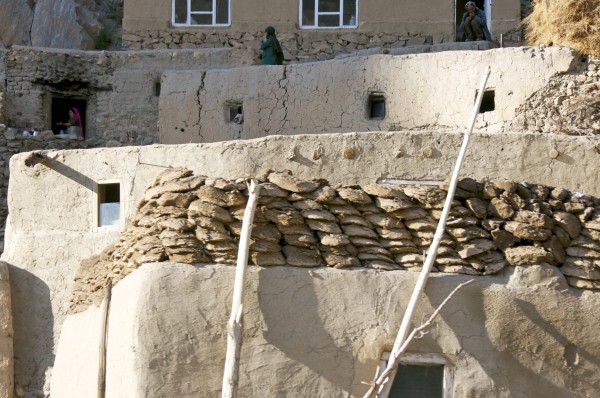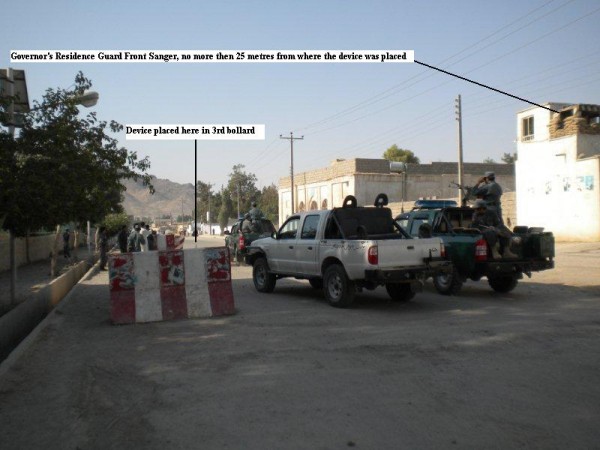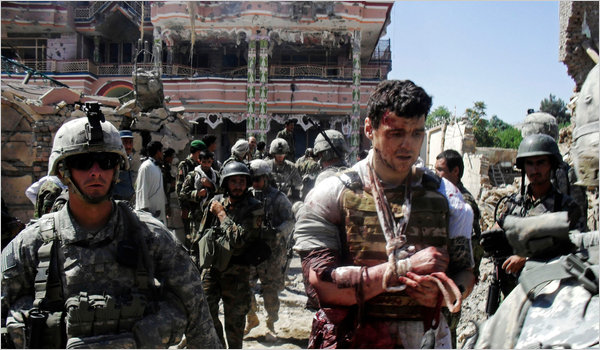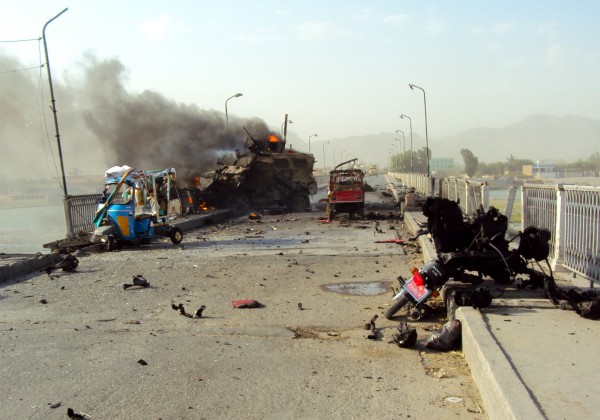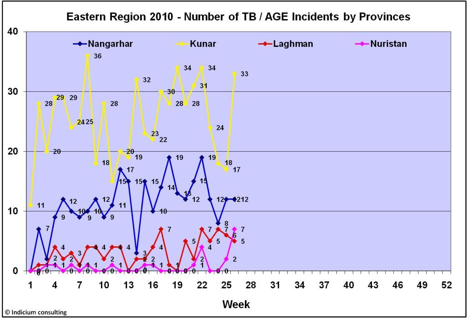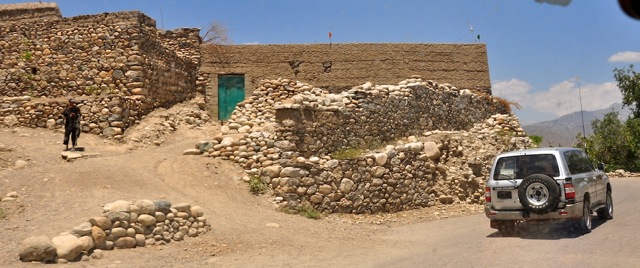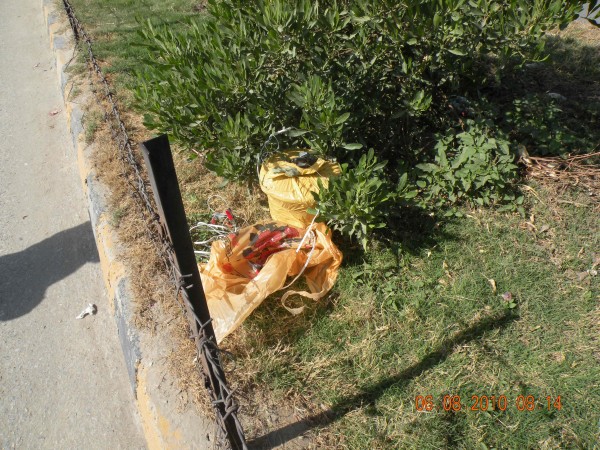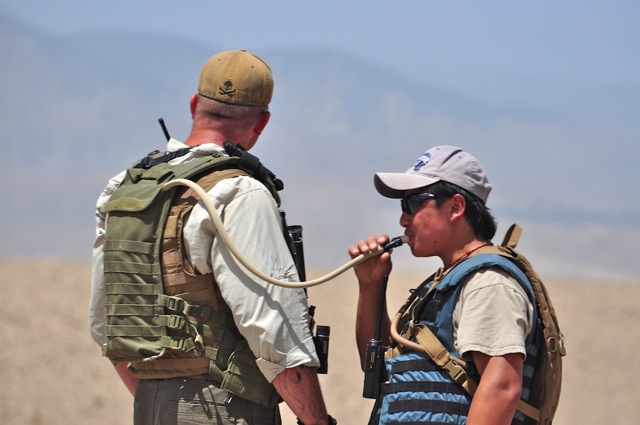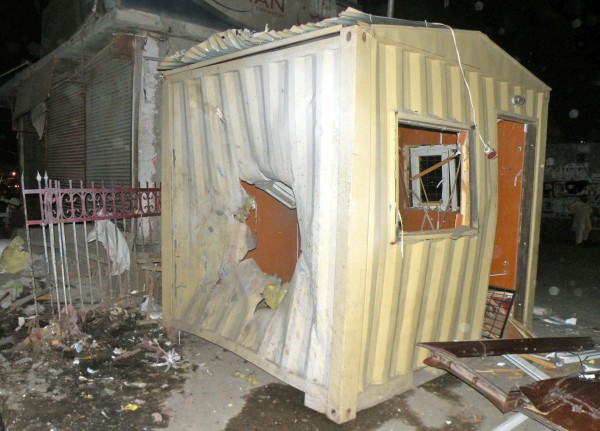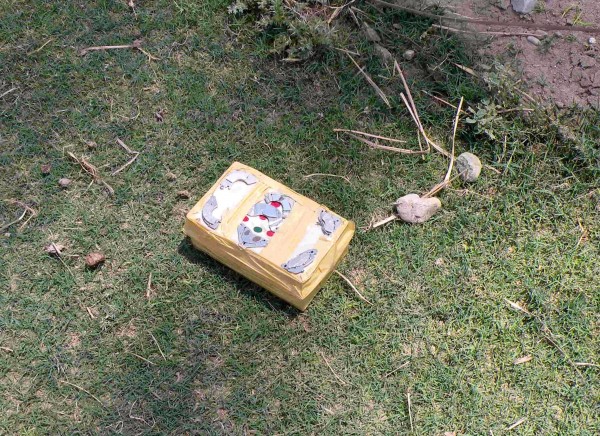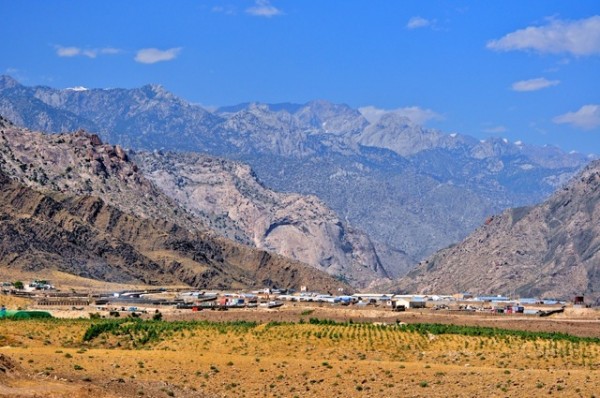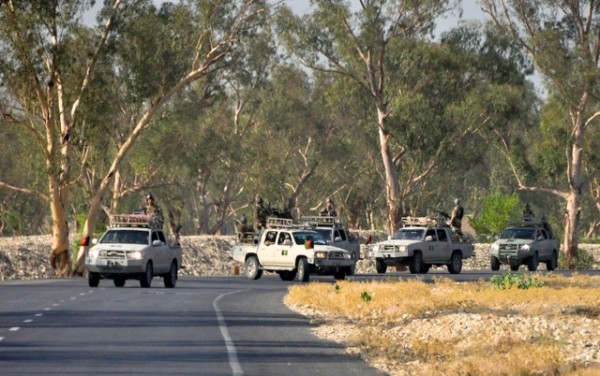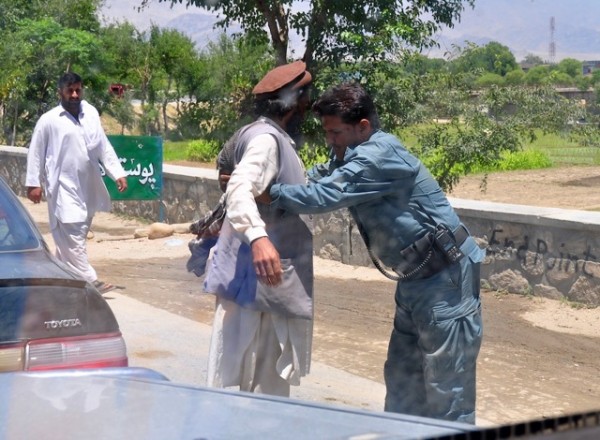Riding With Ghosts
Mitch Potter
KANDAHAR, AFGHANISTAN We are motoring down a bare-dirt back road in Kandahar Province, a road where NATO patrols never go. This way is better, explains the ghost behind the wheel, because roads without soldiers tend not to explode.
The car is soft-skinned no armour. There are no body vests. No helmets. No blast goggles. No convoy. There is a gun on board, but it is concealed to avoid undue attention. Just plain vanilla wheels with two men from Canada dressed as Afghans one, the driver, surveying the way ahead with purposeful, probing eyes, the other, a reporter, wondering what fresh hell awaits on this sweltering Friday afternoon.
Don’t worry. I know these roads better than most Afghans, says the ghost, as we cross the Tarnac River Afghan-style by driving right through it.
He is Panjwaii Tim, a 41-year-old from small-town Manitoba who cites Don Cherry and carries with him a Winnipeg Blue Bombers cap. A few years back he worked in Afghanistan the conventional way as a reservist with the Canadian Forces, a tour replete with frustrations. Too few troops. Too much territory. Too much confusion about which way forward. And just as he began to really understand this place gone. With another fresh batch of wide-eyed six-monthers in his wake. Rinse and repeat.
Now a much-savvier Panjwaii Tim is back on his own terms, not with the military but leading one of the last major Western aid groups still operating freely in Kandahar City, an outfit fast gaining a reputation for uncommon courage. A group dubbed Team Canada.
Nearly every other civilian foreigner has fled Kandahar. Some have taken refuge inside nearby NATO bases, others have retreated to comparably calmer Kabul. But not Team Canada, despite the rash of bombs and targeted killings that torment this crucial southern city. They are working under the radar to rapidly turn tens of millions of international aid dollars into jobs for thousands of Afghan men.
Fighting-age Afghan men, you understand, some of whom, in their desperation for income, would join the only other gainful employers in town the cash-paying Taliban, or, more likely, one of the corrupt private armies that Panjwaii Tim assesses bluntly as akin to the Sicilian mafia.
Never mind hearts and minds, Team Canada is about hands and bellies a largely invisible aid network on the front line, offering stay-alive sustenance to Afghans who might otherwise plant roadside bombs aimed at sending more Canadian bodies home down the Highway of Heroes.
Given the unique and risky manner in which they work low-key, low-security Team Canada is not looking for attention.
But word is trickling out anyway in the wake of a startling, praise-filled post on the military blog Free Range International, which in April anointed Panjwaii Tim and his colleagues with the Team Canada nickname. And it dared NATO commanders to take lessons from Team Canada’s nimble ways and let at least some troops shed the suffocating armour and lumbering metal that encases them.
They are the best crew in the country, the blogger, Tim Lynch, an American contractor who does work similar to Team Canada in safer Nangahar Province, wrote in an email to the Star. They have balls the size of grapefruit.
It was through Lynch that the Star made first contact with Team Canada and, after careful negotiation, scored an invitation to meet them.
The Canadian military today requires reporters to fill out 47 pages of forms before embedding. Panjwaii Tim required only a handshake and a solemn promise on the ground rules.
We’re proud of the work we do. But you understand the stakes: this is life or death for us. No last names, no naming our NGO. No precise description of where we live. The danger is real. Do not make me regret this.
We knit our way through quiet residential streets and then suddenly nose up to the large steel gates of Ghost Central, the Team Canada compound. Two honks of the horn and a small window in the gate opens, eyes peering out. We’re here.
Not that you would know it, for nowhere are the telltale signs of a war-zone Western compound: barbed wire, Hesco blast barrier, sandbagged machine gun turrets. This is just another walled and gated compound in a city of walled, gated compounds.
Inside, however, the operation is vast, half a city block jammed with three main buildings, each with walls of its own and linked by multiple passageways, and a sprawling logistics yard.
People abound. Five to 10 Team Canada expats are in charge at any given time and there are always dozens of carefully vetted Afghan staff.
It needs to be big because this is no branch office. The compound is a full-blown national headquarters overseeing Team Canada’s operations in 14 of Afghanistan’s most precarious provinces, all backed by tens of millions in international donor aid. The money dries up at the end of September, but already Team Canada has been told by coalition diplomats in Kabul to be ready for an even larger chunk of aid cash to come, and to be ready to expand to other provinces.
One quickly discovers Team Canada is actually Team World. A third of this group calls Canada home, but others are from Britain, New Zealand, Texas, New York; some are development specialists, others ex-soldiers. All wear beards of varying lengths; most speak at least some Pashto; the fairer ones have dyed their hair dark to better blend in.
William, a New Zealander who oversees team security, leads me on a tour of the two-storey complex to identify the triage bay, the armoury and the muster area should we come under sudden attack. Along the way we see a well-equipped weight room and a few home comforts: wireless Internet hub, flat-screen TV, a Wii console.
William instructs me to prepare a bug-out bag: passport, money, phone, a change of clothes and work computer. If the call comes to run for the hills, be ready.
Twenty or so vehicles are in the compound. One of the keys to Team Canada’s impressive freedom of movement is never taking the same car (or the same road) in any discernable pattern. Almost all are older Corollas and dust-encrusted Land Cruisers, indistinguishable from the Toyotas Afghans drive.
There is also a small fleet of Chinese motorbikes. Panjwaii Tim quips that they came from the local Haji Davidson dealership. They are another means of escape if the zombie hordes’ come over the wall.
It’s gallows humour, but longer-serving members of this team vividly remember the night they actually saw the zombie hordes: June 13, 2008, when Taliban fighters blasted through the walls of Sarposa Prison on the city’s western edge, releasing all 1,200 inmates in the single largest jailbreak in modern history.
We heard the explosions and the firefight. And then a wave of escapees came running down the street toward us. It looked like Kandahar was about to fall, says Ryan, a South African. The compound was armed and ready. As the night unfolded, the escapees vanished. No contact.
In April, a massive truck-borne suicide bomb managed to penetrate the gates of another foreign compound elsewhere in the city. That blast cleared Kandahar of almost all its Westerners and left Team Canada with an agonizing decision: to stay or go.
After painstaking consideration, they stayed. At first, their stand was tentative, with an around-the-clock watch. We just became more vigilant, taking it up several notches. To say more than that would be giving away our secrets, says Panjwaii Tim.
Within days of the blast, Team Canada received a huge vote of confidence. A tribal elder with whom they had worked closely arrived unbidden with his own armed security team, standing shoulder-to-shoulder with the expats for a full week.
To know that you have friends on the Afghan side who will put their own lives on the line for you — that was a decisive moment, says Panjwaii Tim.
Things are still on a knife-edge, to some extent. We can’t let down our guard. But the way we roll, it is not just about being under the radar. A big part of it is building trust with Afghans. We’re not out there waving guns around. We’re out there putting people to work. There are tribal leaders who respect us for that and so we’re not alone, really. We have a network willing to stand up and help us help them.
The team credits Panjwaii Tim for setting the tone in its dealings with Afghans, an approach centred on two fundamental rules: first, never break a promise; second, always underpromise, then overdeliver.
Pashtun culture is really not that different from my home in Manitoba, says Tim. Where I come from everything works on a handshake. No contracts. You make a deal, you honour it period. That’s exactly how Afghans are. If you live up to the bargain you will make incredibly loyal friends.
One of the issues here is that tribal leaders hear so many promises and every six months there’s a fresh foreign face sitting down with them, ignoring the old promises that weren’t kept and making new ones. That’s not a minor thing. It wouldn’t go over very well in my town either.
The other key part of the approach is the ghostlike, under-armed way Team Canada fits into Afghan society. Nate, a 24-year-old Texan who helps liaise with international donors, tells of being stuck inside a bubble during an earlier posting in Iraq.
Every time we went out, I was surrounded by soldiers with guns. We weren’t fooling anybody. There was no ability to develop relationships with local people. The only moves you could do were with military escort. And the locals often couldn’t come to the base because of security concerns.
That is what is unique about this approach, says Nate. You won’t find another NGO with so large a budget, operating so broadly, with so low a profile. There’s nowhere near the same bureaucracy. When we want to go out and see people, we go. Granted we are very cautious. We move in soft-skinned vehicles, dressed as Afghans. But this way we have a mobility that others don’t because they’re required by their legal departments to go around in these bubbles. We aren’t.
Team Canada’s techniques took 10 years to develop, Panjwaii Tim explains, combining and refining lessens learned since 2001, when the first Westerners arrived in Afghanistan following the attacks of 9/11. To even a casual observer, they appear to be approaches NATO and other agencies would do well to emulate.
Tim notes that living within the community, working with the populace shoulder to shoulder once was a hallmark of Special Forces. Now he says he hears nothing but frustrations from the elite Canadian commandos with JTF2, who, though stationed on the outskirts of Kandahar, appear rarely to leave their base.
JTF2 is not a very happy bunch, says another Team Canada member. Every move they make needs to be approved by Ottawa, and by the time the answer comes, the opportunity is gone. So they’re stuck there.
Put on your manjammies (shalwar kameez) we’re going out, Panjwaii Tim announces from the stairwell. It’s Saturday night in Kandahar and his command is confusing because nobody goes out in this town. Not after dark.
Yet a few minutes later we are motoring down empty streets, ghosts once more. There appear to be more armed checkpoints than normal and Panjwaii Tim takes extra care, choosing a route to avoid the guns.
We approach another set of anonymous compound doors. An Afghan guard nods clearance. Seconds later, a burly Westerner bids us welcome, a hearty hug for Panjwaii Tim, a viselike yet cautious handshake for the reporter.
Here’s where the telling gets especially frustrating because though this turns out to be far and away the most interesting of the nearly 200 evenings I’ve spent in Kandahar since 2002, most of it must stay in the notebook until after this conflict is over. Our host is a private security contractor whose work is too sensitive to risk exposure while he is in the field.
But his regard for Panjwaii Tim is such that he has gathered all the precious treats in the house and assembled an astonishing rooftop party for three, replete with a case of homemade beer, Cuban cigars and, on the coal-fired grill, a mound of Alaskan king crab legs likely the only crustaceans for a thousand kilometres in any direction.
Who is this guy? We will call him John. Ex-special forces from a country we cannot name. Spent time in Iraq. And here now in Kandahar, like Panjwaii Tim, a veteran of this incredibly rarefied work that involves venturing way past the lines NATO considers certain death.
But unlike Panjwaii Tim, John’s smaller team sometimes works directly with NATO special forces in far-flung, unstable districts. Making advance contact with key tribal leaders, working deals to ensure safe meetings, setting the table for the first Western military boots on the ground. And, in some cases, actually showing special forces how to get there.
Over the evening, Tim and John compare notes, working through their mutual depth of knowledge of the Afghan players, big and small. Trading their most valued commodity, information, on who can help and who can hurt the cause.
John actually tries to hire Panjwaii Tim on this night, to steal him from Team Canada. More money, less paperwork. Tim politely declines. He likes his job.
I ask both about trade secrets how they are able to put themselves so far into danger’s way without a net. Both speak of Pashtunwali, their absolute life-or-death faith that Pashtun tribes will keep their promises.
If a leader tells you that on this day at this hour you can take this road and nothing will happen, it will be so, says John. But it works the other way as well. I once had a tribal leader tell me, If you break your word we will kill you.’ I have no doubt that also is true.
John says it’s not just a matter of Western expats saying the right words. He turns to Tim and says, You, for example, have that added X factor. I can hardly put it into words. But you put 100 other guys in front an Afghan leader saying the same things and they won’t be impressed. But you, Tim . . . the Afghans sense your authenticity and they know you are real. Whatever it is, you have it.
Tim squirms uncomfortably with the praise. Later, I ask him about the X factor. It isn’t rocket surgery, as Don Cherry would say. All it takes is hard boots-on-the-ground work and the ability to live long periods in austere environments. You need a dedication to live amongst and learn about the local community. And most of all, you need a strong corporate support network to allow this to happen in a non-bureaucratic manner. . . . That last part is essential.
Tim’s a family man. He doesn’t want you to know how many and where his kids live, but he says he would be with them in Canada today if not for his chance encounter with the smaller, earlier version of what is now Team Canada during his seven-month tour as a soldier in Panjwaii district three years ago.
I got to know Panjwaii well during my tour and if you can understand Panjwaii, you can understand the insurgency in general. But I saw the way the Team Canada operated and I wanted to operate like that too.
On the ride back that night, I notice Tim adjusting a knife sheathed beneath his shalwar kameez. An antique Bowie knife with a storied history it went to war twice before, in WWI and WWII with Tim’s grandfather and great-grandfather, both soldiers from Manitoba.
This knife is pretty well travelled. The thing is, it didn’t come home after six months. They didn’t bring it back until the job was done.
Cruising Kandahar with Team Canada is endlessly hazardous. Moving around Afghan-style means staying on maximum alert for NATO convoys. The second you spot one, pull over instantly or risk the consequences. Because they might shoot you, says Panjwaii Tim.
Stopping brings danger of another sort. Because no matter how well your head is wrapped, Kandahars can spot a non-Pashtun from great distance. And you don’t want that. Smiling or laughing, for example, is discouraged when this crew is travelling because, well, the people of Kandahar hardly ever smile.
Even the Afghan National Police can be bad news for non-military Westerners. Sometimes the ANP checkpoints are manned by 18-year-olds shaking in their boots. But there’s also the risk of criminals or insurgents posing in stolen uniforms.
Team Canada members have a nose for these things. A sixth sense that enables them to calmly motor through things that would reduce most Westerners to a jangling bundle of nerves.
The work itself is all about, well, work creating as much as possible as quickly as possible for Afghans who might otherwise be lost to the insurgency. And we see it firsthand throughout Kandahar, a city of roughly 800,000 where, at present, 2,200 Afghan men are working on low-cost, high-impact projects.
In four locations, we walk among hundreds of Afghans building sidewalks under the hot sun. At each site, one crew levels and grades by hand, while others mix and cast concrete, followed by skilled masons who finish the job. So far, Team Canada’s workers have laid 50 kilometres of sidewalk in Kandahar City.
At other sites, canal and drainage ditches are being cleaned. At one point, we visit the new Kandahar garbage dump near the Tarnac River basin, where Team Canada is overseeing the city’s entire sanitation system.
Team Canada is focusing on Afghanistan’s most problematic districts, those most recently held by the Taliban.
We’re the first ones in, explains Nate, the Texan. The idea is to be as labour-intensive as possible. If it’s a drainage ditch, for example, you might be able to dig it in a week with big machines. But instead, we use men with shovels, and that way employ several hundred for several months. As we reach the peak of the fighting season, that vulnerable population desperate for employment has an option other than to become prime recruits for insurgents.
Back at the safe house , everyone has a different way of winding down. Occasionally, some gather to watch a DVD. Movie night during our stay was especially surreal seeing Robert Downey Jr. abducted in Afghanistan in Iron Man takes a different twist when you are actually in Afghanistan. Others stayed in their rooms, using the wireless connection to Skype home to loved ones.
But every morning the routine is the same all gather around a vast circular breakfast table for a daily security update, which lately involves eyebrow-raising information about spiralling violence. One such morning the Star arrived at the table just as Panjwaii Tim was grimly warning about the consequences of gunfire: prosecution by Afghan officials. If any of you shoot an Afghan, your career is over. You are done.
Yet there are times when the guns come out. Ours occurs on Day 5, as we return from a morning surveying projects only to find a suspicious Afghan loitering in front of the gate.
I don’t know this guy. What is he doing here? This is bad, says Panjwaii Tim. He doesn’t need to say aloud what we’re both thinking suicide bomber.
A split-second later, Panjwaii Tim raises a pistol showing it to, but not pointing it directly toward, the unknown Afghan. He waves the gun menacingly, gesturing the man away from the gate. The Afghan quickly obliges.
What happens next, however, reveals more about the character of this crew. After pulling inside the compound, Panjwaii Tim puts his gun away and returns unarmed apologetic, even to ask the man’s business.
Speaking in Pashto, the man pleads for work to feed his family. And he produces a typed letter, written in English, bearing the Canadian flag. It is a testimonial from a Canadian military commander, circa 2007, attesting to the man’s efforts assisting an earlier troop rotation.
Panjwaii Tim scans the letter. Phone numbers are exchanged. Promises given. Two days later the man is building sidewalks under the watchful eyes of the Canadian ghosts.
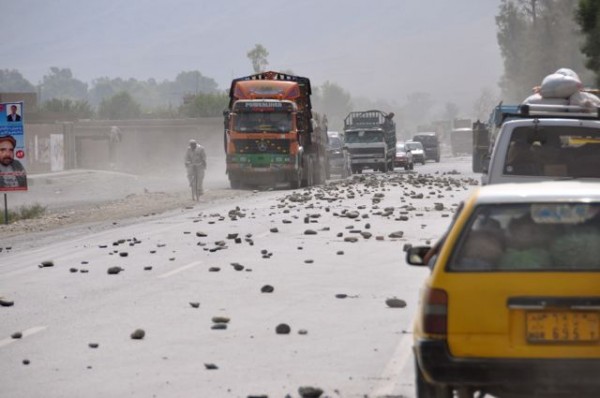
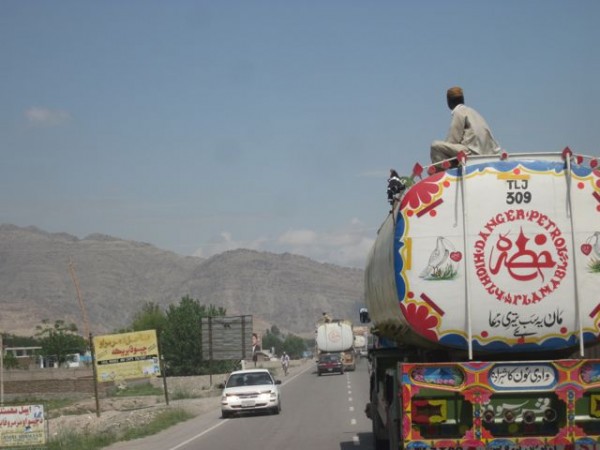
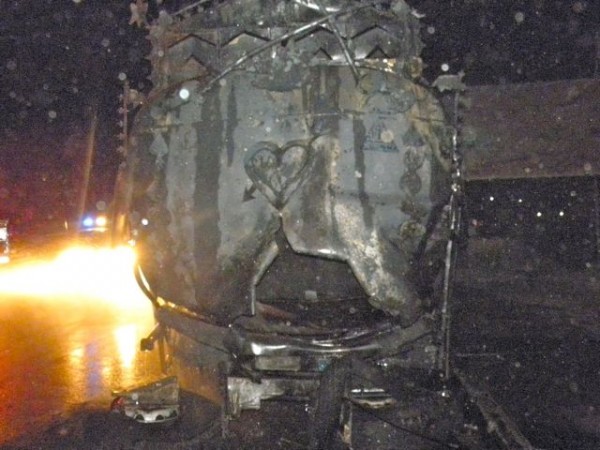
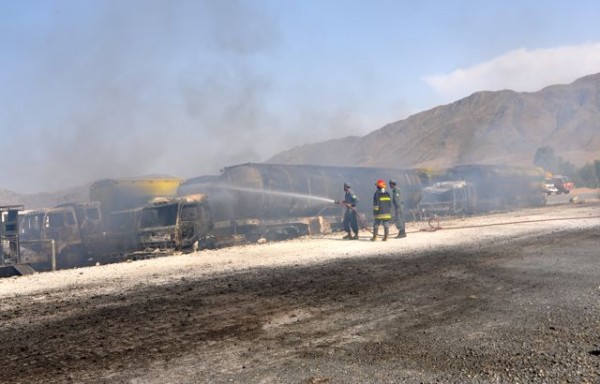
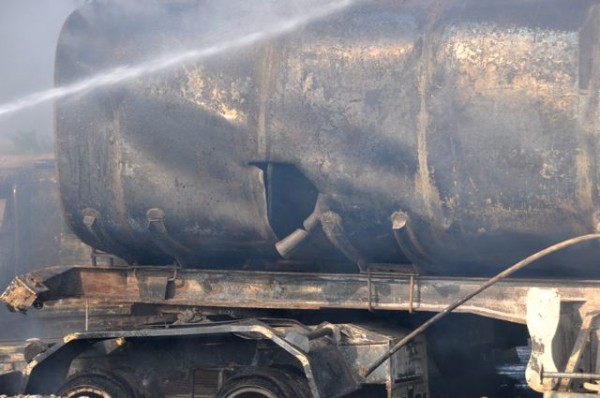
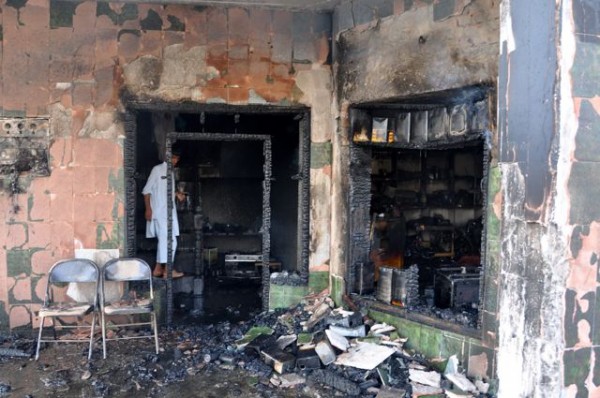
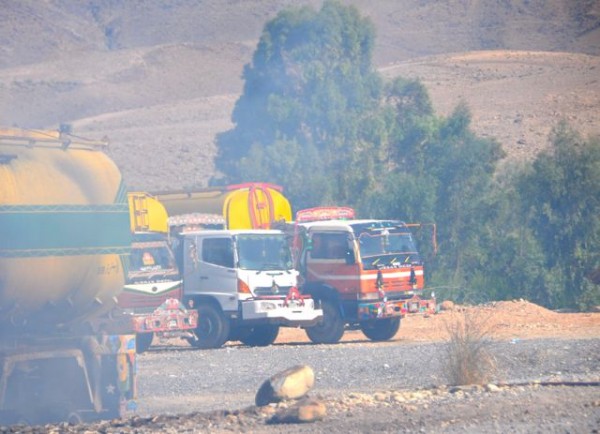
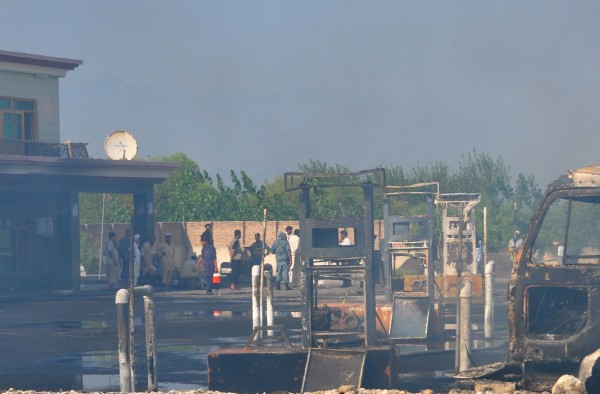
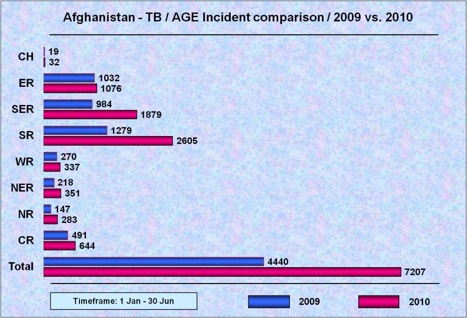
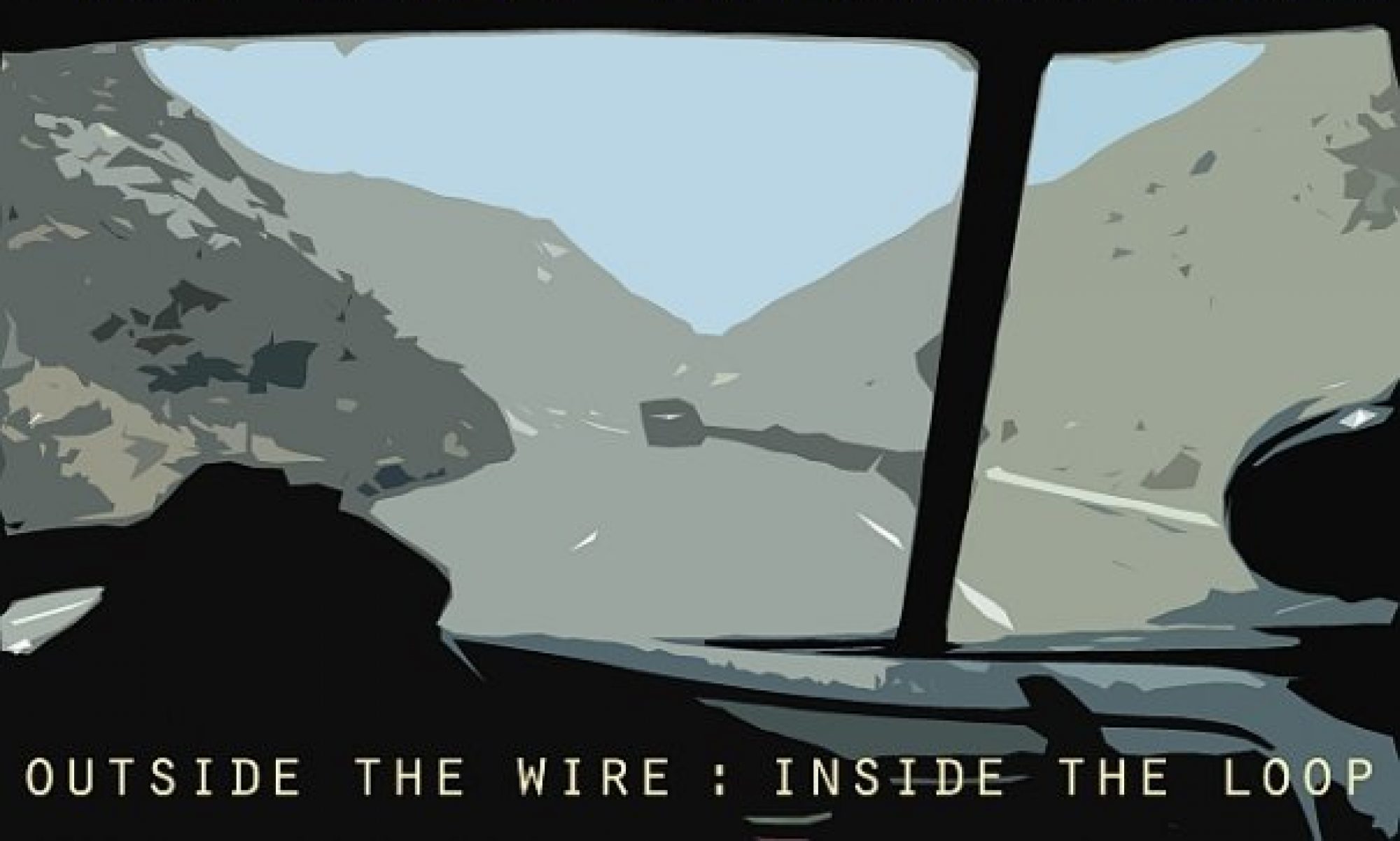
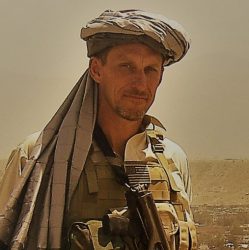
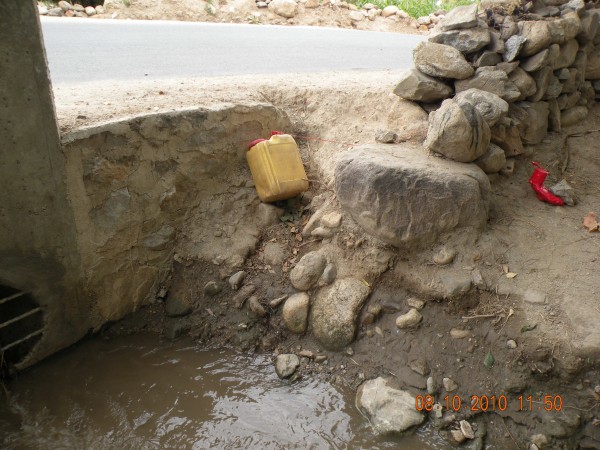
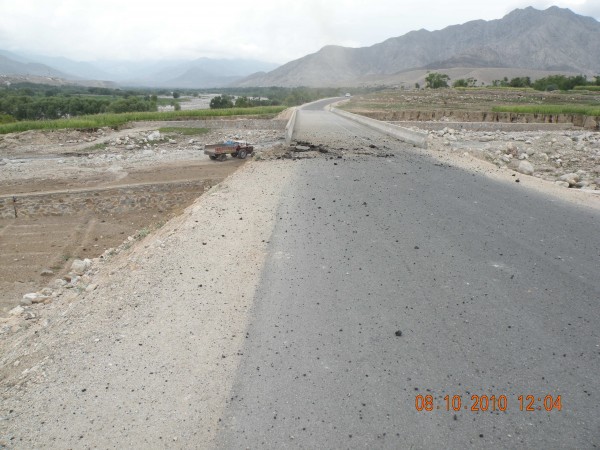
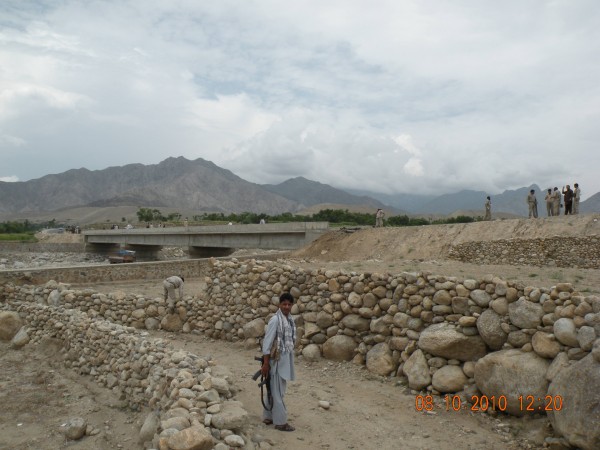
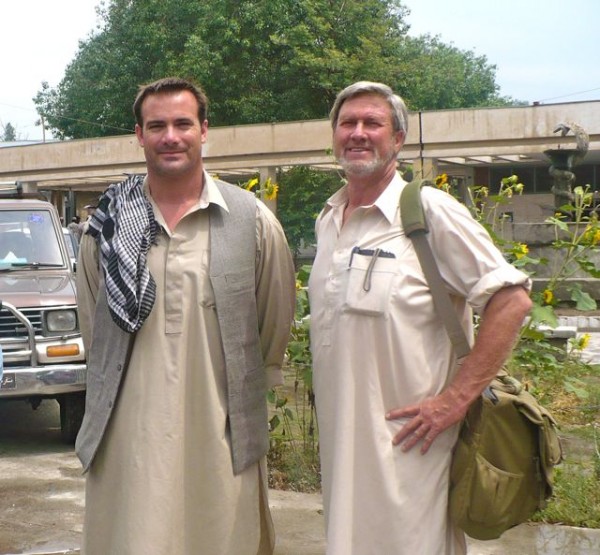
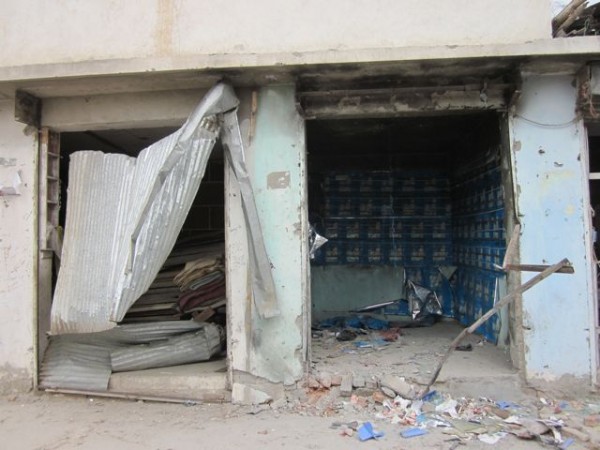
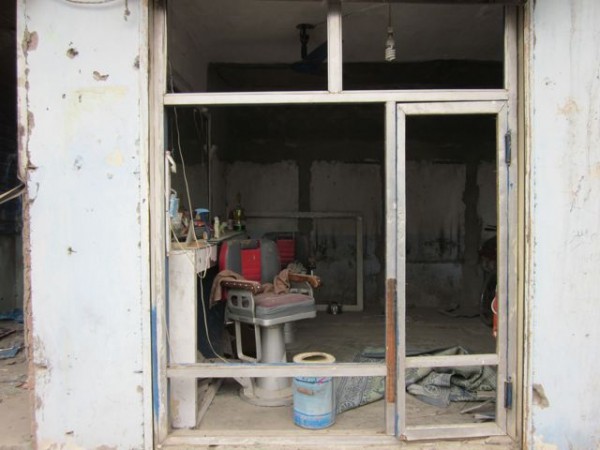
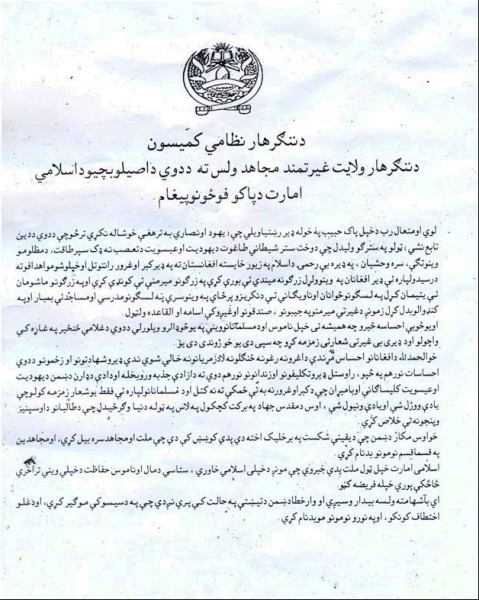
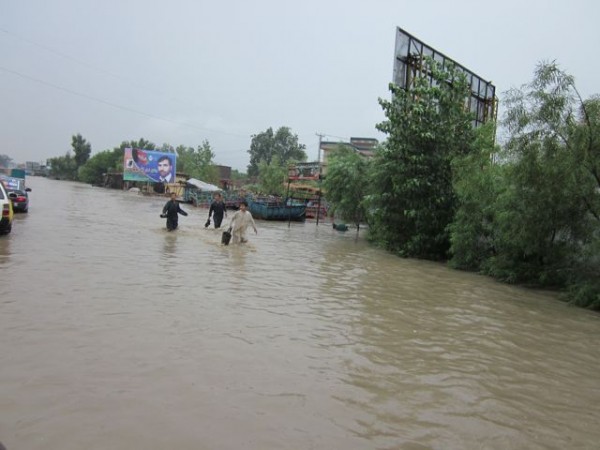
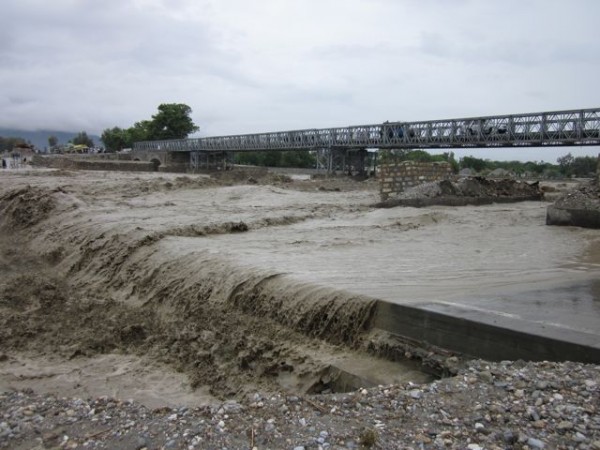
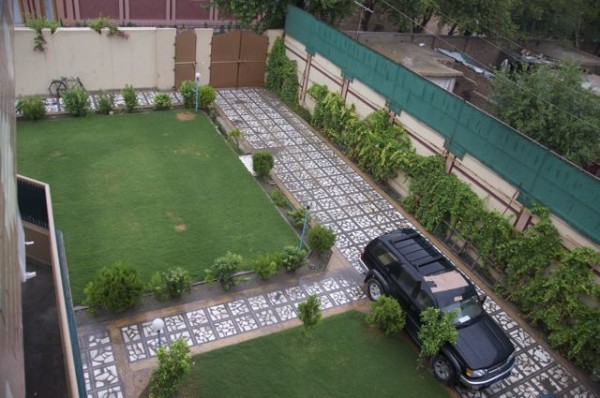
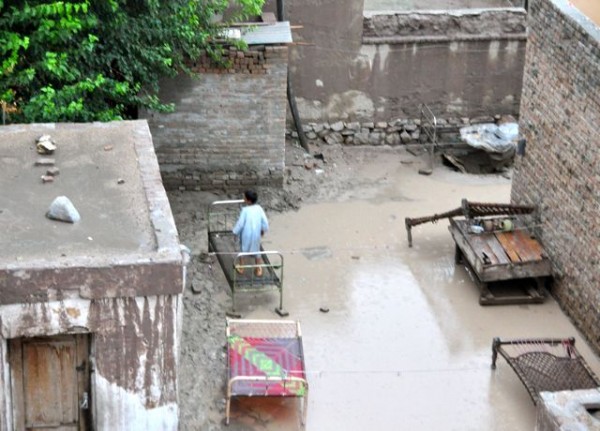
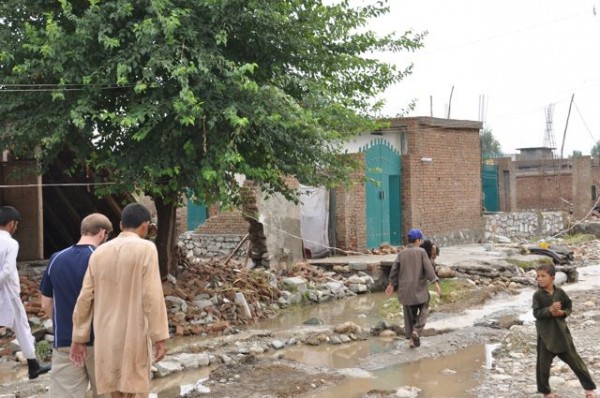
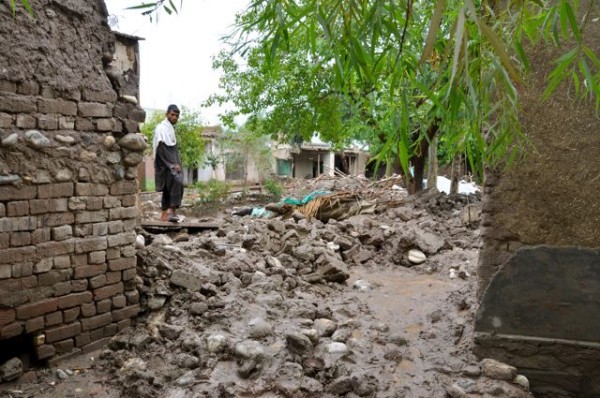

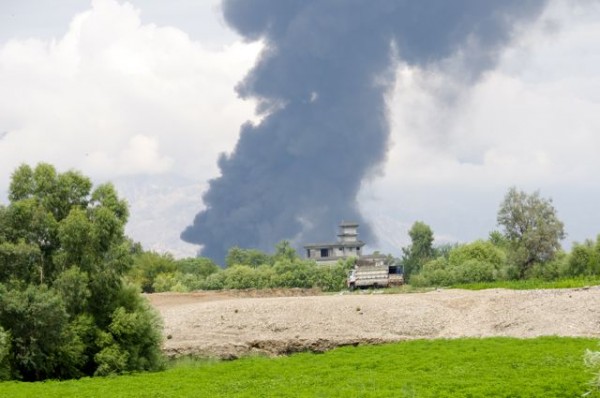
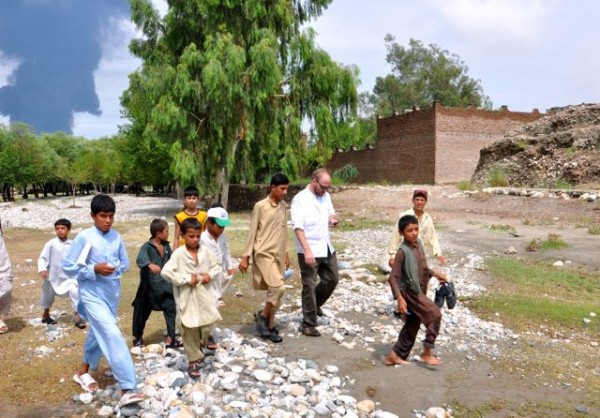
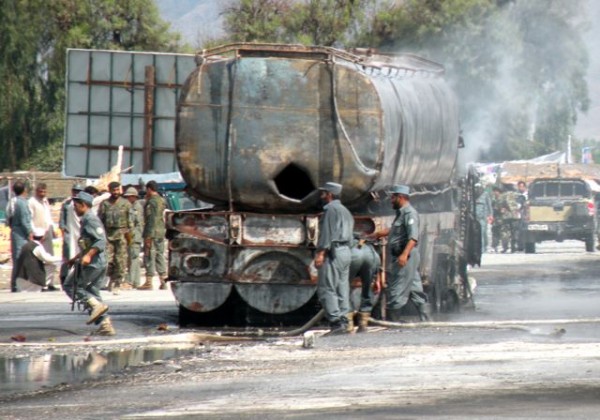
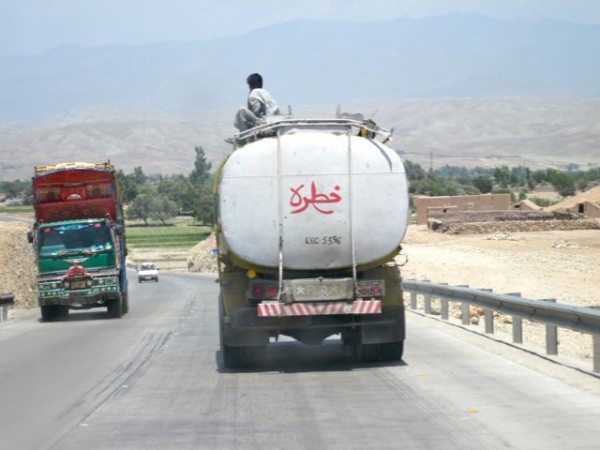
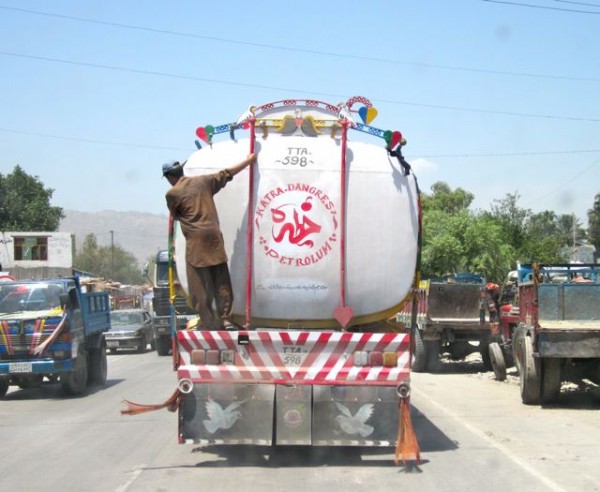
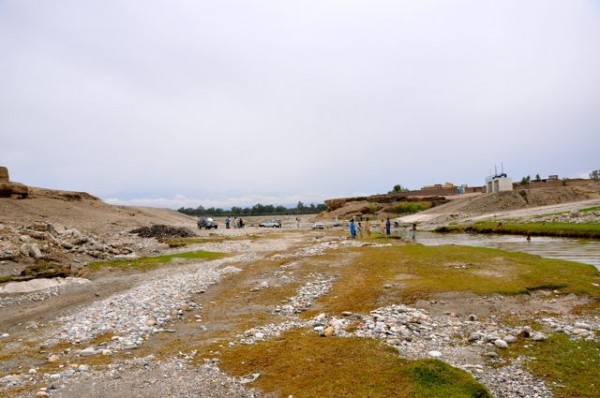
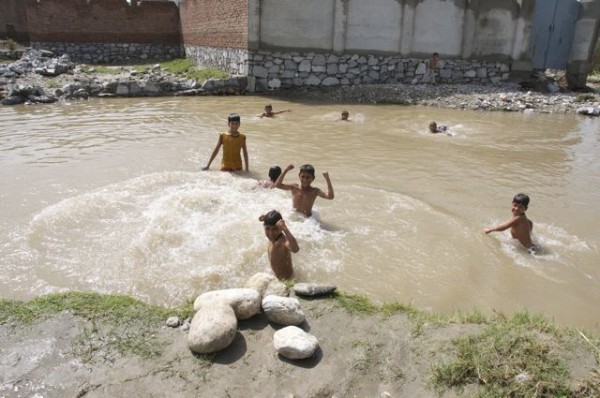

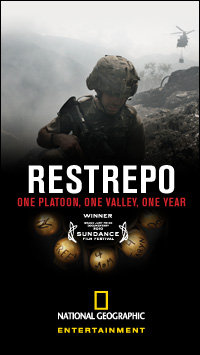 My conversation with Tim Hetherington was really enjoyable. Our Skype connection was crystal clear and we got along like old friends. Tim and I had such a great time chatting with each other I never got around to doing any interviewing. I know that sounds strange, but we were having such a great give and take about all kinds of things that I asked very few direct questions about the film.
My conversation with Tim Hetherington was really enjoyable. Our Skype connection was crystal clear and we got along like old friends. Tim and I had such a great time chatting with each other I never got around to doing any interviewing. I know that sounds strange, but we were having such a great give and take about all kinds of things that I asked very few direct questions about the film.